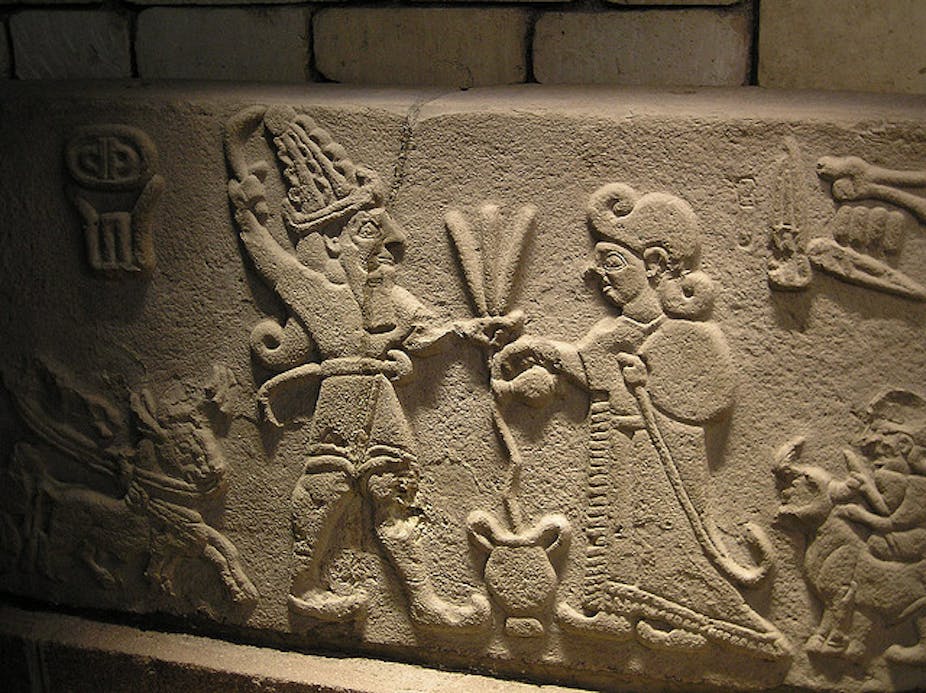Climate change sparked the political and economic turmoil that hastened the collapse of formerly prosperous civilisations in regions such as Greece and Syria towards the end of the 13th century BC, a new study has found.
The findings may help modern scientists better understand how climate change can drive political and economic collapse.
The study, conducted by researchers from France’s University of Paul Sabatier and published in the journal PLOS One, analysed pollen grains from sediments drawn from an ancient body of water that once teemed with life but then dried to a salt lake.
The researchers think that the pollen revealed clues suggesting climate change-induced drought and famine may have preceded social and political unrest in the Late Bronze Age.
“The Late Bronze Age world of the Eastern Mediterranean, a rich linkage of Aegean, Egyptian, Syro-Palestinian, and Hittite civilisations, collapsed famously 3200 years ago and has remained one of the mysteries of the ancient world since the event’s retrieval began in the late 19th century AD,” the researchers said in their paper.
“By combining data from coastal Cyprus and coastal Syria, this study shows that the Late Bronze Age crisis coincided with the onset of a 300-year drought event 3200 years ago. This climate shift caused crop failures, dearth and famine, which precipitated or hastened socio-economic crises and forced regional human migrations at the end of the Late Bronze Age in the Eastern Mediterranean and southwest Asia.”
The researchers said their “integration of environmental and archaeological data along the Cypriot and Syrian coasts offers a first comprehensive insight into how and why things may have happened during this chaotic period.”
Modern lessons
Andrew Glikson, an Earth and paleo-climate scientist at the Australian National University, said the study showed that “decline of global temperatures by less than one degrees Celsius was enough to result in climate-driven famine, seaborne-invasion and region-wide warfare.”
“Likely the economic collapse of societies led to migration and invasion of people looking for new food resources,” said Dr Glikson, who was not involved in the study.
“The implications for modern climate change are stark, as land temperatures have already risen by approximately 1.5C, with currently ongoing series of droughts and extreme weather events in several regions.”
Jonathan Tyler, a lecturer in the School of Earth and Environmental Sciences at the University of Adelaide said the new paper “provides further insights into the role of climate in shaping history.”
“It is one of a number of case studies that are emerging worldwide that identify climate change as an important factor in the reorganisation or collapse of civilisation. Other examples include the Mayan civilisation in South America and the Dynasties of China,” he said.
Studies like this are important because they provide a context to the issues being faced today and into the future, where societies are being forced to adapt to changing climatic and environmental conditions, said Dr Tyler.
“Although we are probably better equipped than ever to predict the effects of climate change upon a particular location, we should never assume that our knowledge is complete, nor that we are fully prepared for the changes to come.”
Dr Tyler said studies using sediment records highlight the propensity for climate variability beyond the instrumental record, which typically spans just the last 100 years.
“Sediment records provide hindsight, which allows us to put potential future changes into long term context and provides the means to test the ability of climate models to predict such changes. Combining past climate research with archaeological evidence provides a critical human perspective,” he said.
“We are reminded that in many parts of the world, human civilisations are intrinsically linked to climate, and that we can never take their enduring prosperity for granted.”


